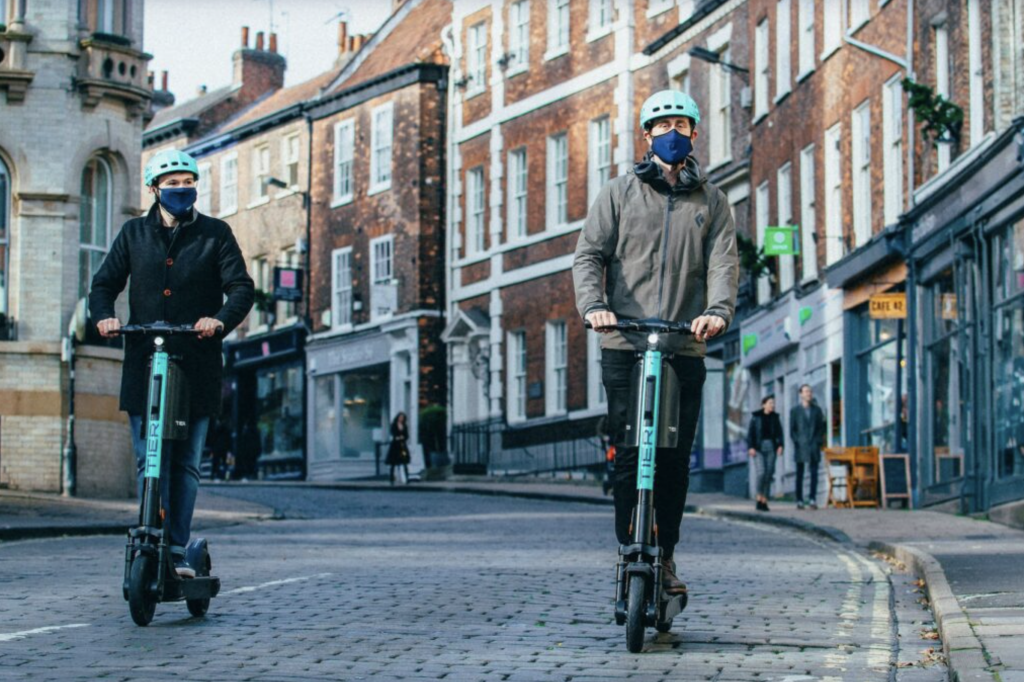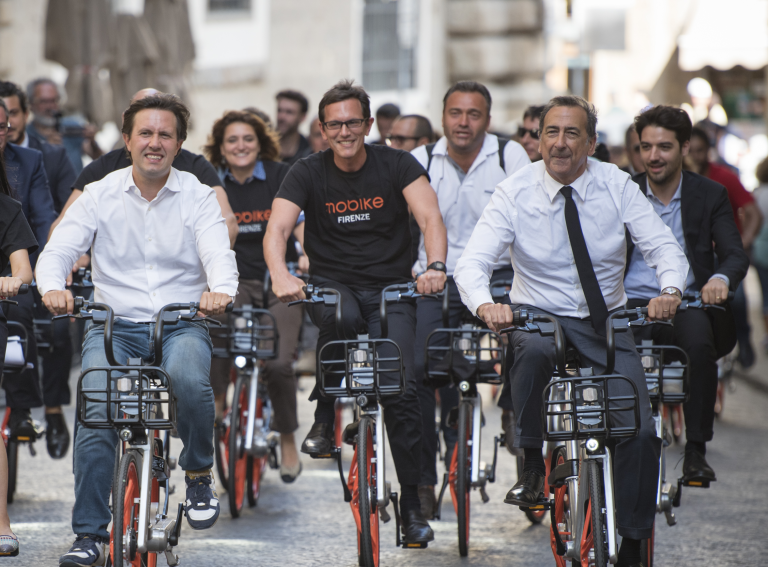The Parliamentary Advisory Council for Transport Safety (PACTS) is urging more operators to collaborate after already working with Tier and Bolt.
PACTS advises the UK government on transport safety and had previously taken the position of opposing the 12 month e-scooter trials.
It said back in June 2020 there was “growing evidence of the health and safety disbenefits of e-scooters and their questionable environmental credentials”.
It also opposed the UK trials on the basis they would further promote illegal use of private e-scooters.
However, David Davies, PACTS executive director, (pictured) told Zag: “We accept the trials are happening and although we might have appeared sceptical in the past, we want to learn more.
“We would urge more operators to engage with us.
“It has already been useful to learn from Tier and Bolt about e-scooters from their perspective.
“Our objective is to end up with e-scooter use that is as safe and socially responsible as possible.”
Davies said that he was initially surprised that Tier and Bolt approached PACTS after having such a hardline stance against e-scooters originally, but said both have been engaging constructively, “rather than trying to shut us up”.
Tier got in touch with PACTS last year after the organisation had posted its “critical but thoughtful report” on e-scooters. It became a member and invited Davies to join the Tier Safety Board.
Fred Jones, Tier general manager for Northern Europe, said: “Before launching in any market we invest time in listening to and addressing local concerns – whether from residents, disability charities, safety groups, and so on.
“It is our belief that real action comes when you bring sceptical experts into the fold – and so we were thrilled to welcome David as an independent member.
“Since then, he has not only been playing an active role in that capacity but Tier has been invited to sit on a PACTS Vehicle Design working group to provide technical guidance on a range of safety issues.”
While PACTS is open to learning more about the trials happening in the UK, it still has fundamental issues with e-scooters as a mode of transport, compared with e-bikes and e-cargo bikes, which it does support.
“I still question the public benefit…”
David Davies, PACTS executive director
Davies said: “I’m sure e-scooters are fun to use and there will be some use cases for certain people, but I still question the public benefit.
“We looked at the experience of other countries and by and large e-scooters are replacing walking trips, some public transport trips and a little bit from pedal cycles.
“The big modal switch from cars has only really been in the US and that’s because there isn’t really anything else really.
“E-scooters by and large are taking people off their feet and there aren’t the same physical health benefits you get from walking or cycling.”
Richard Corbett, Voi regional general manager UK, Ireland and Benelux, acknowledged Davies’ point on modal shift, but reiterated that one of his company’s key missions is to reduce reliance on cars for shorter journeys.
Corbett told Zag: “A Voi user survey conducted in June 2020, showed that 14% of our users are replacing short car trips with e-scooters, up from 11% since the previous year.
“However, we have conducted a survey among our users in the UK, encompassing the first three months of operations, and we found that 34% of our users would have considered taking a car if they hadn’t used a scooter.
“Once the volumes of scooters increase further I think we’ll see that model shift away from cars increase drastically.”
Voi is currently investing in an independent third party study to look at modal shift in much greater depth over the next 12 months.
Corbett said: “We can’t talk about how great we are without backing up our statements with research from an independent third party.
“We’re biased and we want this to work. We need that credibility of an impartial third-party to validate some of these benefits.”
The trials have become the consultation
PACTS also took issue last summer with how quickly the UK e-scooter trials were approved in what Davies described as a “concertinaed four-week process”.
He has also seen data suggesting there are already 400,000 privately owned e-scooters on UK public roads so far and that while the police are trying to confiscate and fine people using them, “stopping private use is realistically not possible”.
That means legislating and legalising e-scooters is the way forward, but Davies said that process will need to wait until the trials have been completed and the DfT can assimilate feedback.
Davies said: “It’s pretty clear the UK government is going to legalise e-scooters in the future and they’re not going to stop the trials and make e-scooters illegal at the end of it.
“Our primary concern isn’t the trials. As we’ve seen in Coventry, if something does go wrong, the local authority can shut down a trial overnight.
“There is no research going into private e-scooter use and the DfT is using these trials to inform what happens next, including with private e-scooter legalisation.”
Davies acknowledges that some of the e-scooter operators are working hard to address safety and anti-social issues related to e-scooter use.
However, he said: “Others are not so keen to address them and avoid those areas.
“That’s partly because some of the councils have set clear service standards, whereas others have favoured the financial contribution operators are making.”
Are the safety features working?
E-scooter operators in the UK have put in place three strike rules, in-depth training solutions and geofencing as just some of the ways to tackle safety and anti-social behaviour.
However, Davies said it’s not yet clear what is actually working on the ground and PACTS wants to see more data.
He said: “There’s a lot of talk about geofencing, but some operators are deeply suspicious of it.
“I’m not sure if all the safety claims are substantiated in reality.
“The operators are trying hard to address some of these issues, but we want to see some data to back this up.
“I also want the DfT to clarify the timetable on the trials. London is only just starting. When does the trial period finish? When do they expect to make an assessment based on their research?
“If they are minded to legalise private use, how are they going to come to those set of regulations?”
PACTS has already worked with Tier on its initiative to tackle illegal private e-scooter riding, whereby Tier allows people to exchange their own used e-scooter, which can then be recycled for rental credits of equivalent value.
Jones said riders are regularly surveyed to check their awareness of Tier’s safety features, their understanding of the rules of the road and the effectiveness of the company’s safety content.
Tier is also tracking data on safety hardware performance, such as helmet usage, to better understand uptake with riders.
Jones said: “Riders are also encouraged to report safety incidents or concerns directly to us.
“This is used to help understand the volume of safety incidents on the platform and the extent to which our interventions are working.”
Data can help identify dangerous hotspots

Tier also has a partnership with Busby, the safety app, which begins a 30-second countdown to allow riders to move or respond.
If no movement is detected, the rider’s location will be sent to their emergency contact and to Tier’s local city team who can arrange help.
Jones added: “An additional benefit this brings is new safety data for cities.
“With Busby we can not only provide information on where accidents take place – but the technology is even able to detect near-miss data.
“Combined, that makes for rich insights to a city, enabling them to target action at dangerous hotspots and reduce the risk of incidents in future.”





